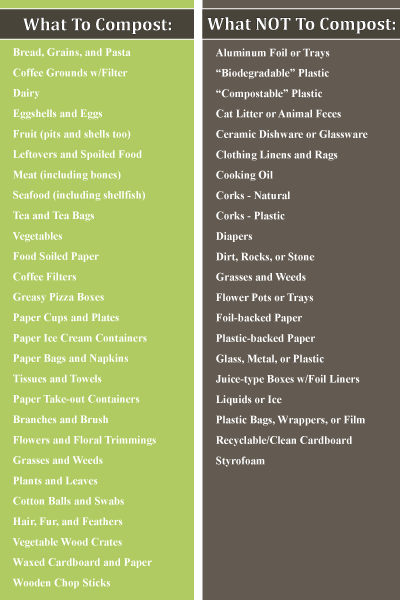Composting Facts
Know your composting facts…
What is composting?
Compost is a simply rich organic soil that is made as micro-organisms decompose yard and kitchen waste. It can make grass greener, tomatoes bigger, and bushes bushier. Compost can replace some fertilizer and reduce the amount of water a yard needs because it adds nutrients and increases the water-holding capacity of soil.
How long does it take to compost?
In general, compost from an aerobic windrow should be processed for a minimum of 60 to 90 days, although even after this time the compost may still be unstable. Most compost should be actively processed 90 to 120 days to be considered stable. This additional processing time results in compost that is sometimes referred to as being “cured.” Some experts believe that compost should be cured for six months before use.
What can I compost?
Anything that was a plant can be composted. All plant materials contain nitrogen and carbon. Materials high in nitrogen are called “greens,” e.g. grass clippings, manure, and kitchen scraps. Materials high in carbon are called “browns,” e.g. leaves, sawdust, and wood chips.
Do You Know?
Composting can be as simple as making a pile of leaves and letting it sit until it decomposes.
Composting occurs best when materials are moist.
You do not need to live in the country to compost.Many people compost at the heart of inner cities, in community gardens or even on the roofs or balconies of schools and apartment buildings.
Most food waste can be composted in small-scale compost systems, you should avoid grease, fat, bones, fish, and meat scraps. These materials attract dogs and nuisance animals and often develop odors while composting.
Do not use diseased vegetable or flower plants for composting. These diseases may be returned to the garden with the compost.
Most people compost in a bin to keep the materials contained and neat, but it is not necessary.
By composting, a typical household can reuse more than 500 pounds of waste each year.
Compost also aids in erosion control, promotes soil fertility, and stimulates development of healthy roots.

